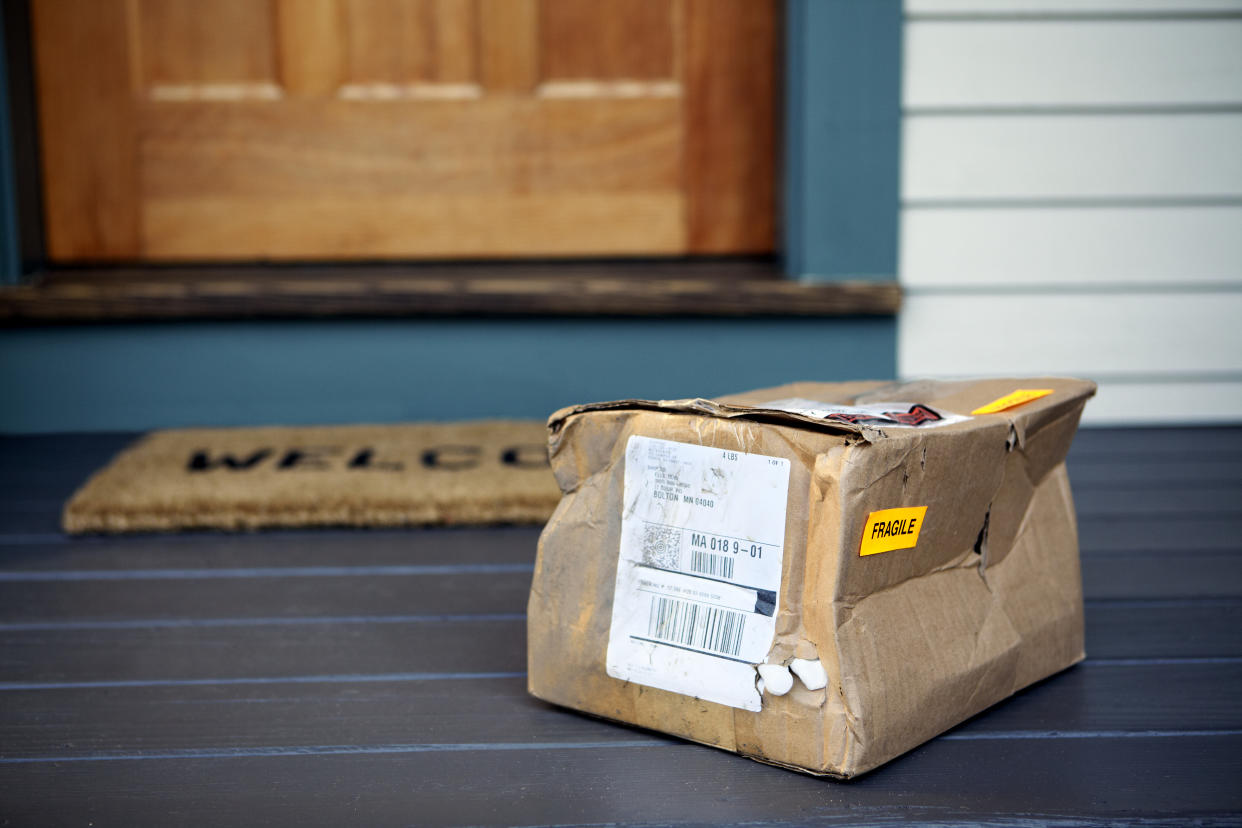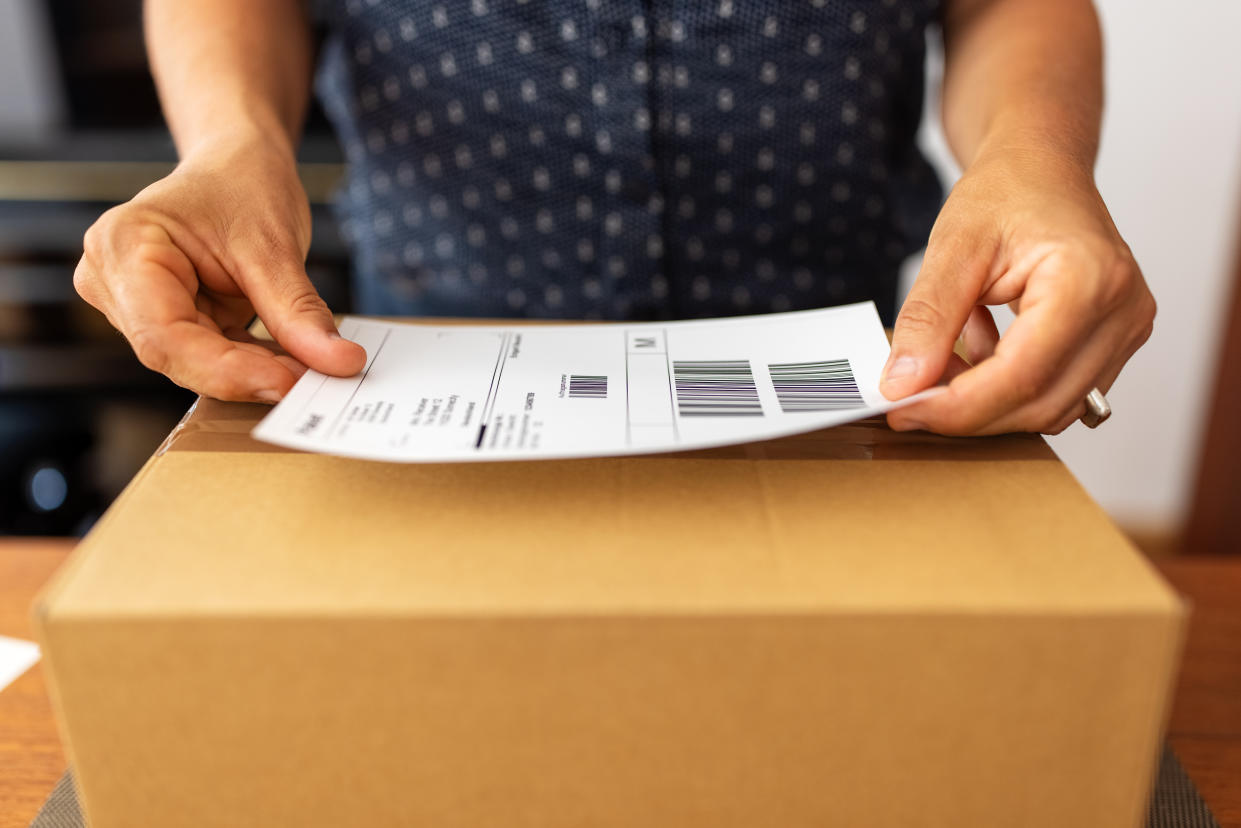Should you get shipping insurance for your package when you shop online?

When you order something online, you usually trust that the package will make its way to you intact. And that's typically the case, but nothing is foolproof. About 90,000 packages a year delivered to urban areas like New York City or Washington, D.C., never arrive at customers' doors due to logistic issues and 'porch piracy,' according to the New York Times. Nationwide, about 1.7 million packages disappear! Then you have the packages that do arrive but damaged: that accounts for about 10 percent of packages delivered by major services.
All of this begs the question: should you insure your package when you shop online?
In general, the answer is no. The companies shipping your products usually have their own shipping insurance policies built in, as the onus for shipping insurance is typically on the sender, not the recipient. If you choose to stay on the safe side, though, you can choose to buy your own shipping insurance. It's not commonly done by online shoppers, but it's an option.
What is shipping insurance, anyway?
Shipping insurance is a policy that provides coverage for the contents of your package if it's damaged, lost or stolen. The retailer or company you're purchasing from will traditionally cover the insurance. Their policies might cover loss, theft, damage or — usually — all of the above. That means if you, the consumer, receive a damaged item or no item at all, there will be a policy in place to reimburse you or rectify the situation. Behind the scenes on the seller's end, an insurance claim will need to be filed to cover the loss.

What should you do if your package arrives damaged?
If your package arrives with damaged contents inside, here's a smart plan of action:
Take inventory of the damage, then take pictures.
Make sure to keep all the original packaging.
Contact the seller to ask about their exchange or reimbursement policy, which typically covers damage.
You can usually find the company's detailed return and exchange policy on their website. Most retailers will provide packing labels and instructions for returning the item.
What about if the package never arrives at all?
A package usually goes missing in action for one of two reasons: it either gets lost en route, or it's stolen in an all-too-common phenomenon known as 'porch piracy.' If your package goes missing, contact the seller to see what the next steps are. Some companies offer money-back guarantees. Others will instruct you to contact the shipping carrier for further instructions. Don't be surprised if the seller asks you to wait a few days before initiating action, just in case the delivery is late.
In what scenarios would you, as the buyer, purchase shipping insurance?
It's rare, but in some cases, the consumer might choose to invest in peace of mind by buying private shipping insurance, usually as a supplement for the shipping insurance provided by the seller. Maybe the product has a high monetary value or the seller doesn't provide insurance for some reason.

Should you buy shipping insurance if you're the one shipping a package?
Shipping your own package? In this case, it's common to buy shipping insurance. Most major carriers offer built-in insurance options, and some options are free if the goods you're sending are worth less than $100 — but you can also choose from private shipping insurance services that usually cover higher dollar amounts.
When you opt for shipping insurance, you declare a value for what's inside your package, and if the worst happens, you can be reimbursed for that declared value. Some services place limits not only on monetary value but also on the product being delivered — in other words, there are some products and materials that aren't included in certain companies' policies.
It's not common for something to go wrong with your package, but it can happen. Most shipping insurance covers damage, loss and even theft. So if you're shipping something of value, shipping insurance can cover your losses if something goes awry. And if it does, you have a whole new process to embark on: filing your claim, then waiting for approval and (ideally) reimbursement.
How much does shipping insurance cost — and is it worth it for sending packages?
So, is shipping insurance worth it? That's for you to decide. Here's a look at the ins and outs of shipping insurance at all the major mailing services and a few popular private options, plus how much each will cost you.
USPS
Coverage amount: Up to $5,000
What it covers: Loss, damage or missing contents
Cost: For standard shipping, the range is $1.65 for $50 of declared value to $4.60 for $300. The price per additional $100 of insurance, valued over $300 up to $5,000, is $4.60 plus $0.90 per each $100 or fraction thereof. Free up to a declared value of $100. For Express Mail insurance, anything over $100 up to $200 is $0.75. For $200.01 to $500, it's $2.10. And for $500.01 to $5,000, it's $2.10 plus $1.35 per each $100 or fraction thereof.
UPS
Coverage amount: Up to $50,000 with a UPS account number (or up to $5,000 without)
What it covers: Loss or damage
Cost: Free up to $100 of declared value. It's $3.80 for $100.01 to $300. For $301 forward, it's $1.30 per $100 additional declared.
FedEx
Coverage amount: It's up to $50,000 for 1 Day (Overnight), 2 Day, or 3 Day (Express Saver) packages. It's $2,000 for FedEx Ground and FedEx SameDay. It's $50,000 for First Overnight, FedEx 1Day, 2Day, or 3Day Freight. It's $500 for FedEx Envelope or FedEx Pak (with certain limitations).
What is covers: Loss, theft or damage
Cost: Free up to $100 of declared value. After that, for FedEx Ground, it's $1 for every $100 of declared value. For FedEx U.S. Express, it's $3 for $100 to $300 of declared value, then $1 for every $100 of declared value beyond $300. For FedEx International Express it's $1 for every $100 of declared value beyond the first $100.
DHL
Coverage amount: Up to $500,000
What it covers: Loss or damage
Cost: Free up to $100 of declared value. $1.25 for every $100 of the declared value beyond that, with a minimum of $3.75 for exports and $10 for imports.
So should you get shipping insurance? The answer is, it all depends!


